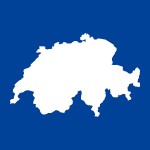23.01.2020 , in ((Sanctuary Cities))
, ((No Comments))
Loren Collingwood
 Civil conflict embroiled El Salvador and Guatemala in the 1980s leading to an exodus of refugees seeking asylum in the United States. These events birthed the sanctuary movement, and later the sanctuary city movement. The second growth of sanctuary cities came in response to Bush’s Post-9/11 era immigration security crackdown.
...
Civil conflict embroiled El Salvador and Guatemala in the 1980s leading to an exodus of refugees seeking asylum in the United States. These events birthed the sanctuary movement, and later the sanctuary city movement. The second growth of sanctuary cities came in response to Bush’s Post-9/11 era immigration security crackdown.
...
+ Read more
21.01.2020 , in ((Sanctuary Cities))
, ((No Comments))
Philipp Lutz, David Kaufmann and Dominique Strebel
 On October last year, we held an event series entitled “Sanctuary Cities in Switzerland?” about the meaning of a sanctuary city and whether this phenomenon also exists in Switzerland. The nccr – on the move supported event series laid the grounds for an in-depth consideration of the issue of sanctuary
...
On October last year, we held an event series entitled “Sanctuary Cities in Switzerland?” about the meaning of a sanctuary city and whether this phenomenon also exists in Switzerland. The nccr – on the move supported event series laid the grounds for an in-depth consideration of the issue of sanctuary
...
+ Read more
08.01.2020 , in ((Experiences))
, ((No Comments))
Patrícia Nabuco Martuscelli
Family reunification, a phenomenon often studied in developed countries, is necessary to guarantee the right to family life for refugees. Based on interviews of refugees living in São Paulo, my study highlights the different strategies refugees adopt in selecting a family member to join them in Brazil through the reunification
...
+ Read more
17.05.2019 , in ((Politics, Schengen/Dublin))
, ((No Comments))
Philipp Lutz and Stefan Manser-Egli
 Die Schweiz partizipiert am europäischen Integrationsprozess, wenn auch nicht als Mitglied der Europäischen Union. Dies schafft funktionale Integrationszwänge, wie die Schengen/Dublin-Assoziierung verdeutlicht. Ein gemeinsamer Binnenmarkt und die Reisefreiheit in Europa sind öffentliche Güter, deren Herstellung und Aufrechterhaltung gemeinsame politische Regeln verlangen. Die Nicht-Übernahme der EU-Waffenrichtlinie durch die Schweiz wäre versuchtes
...
Die Schweiz partizipiert am europäischen Integrationsprozess, wenn auch nicht als Mitglied der Europäischen Union. Dies schafft funktionale Integrationszwänge, wie die Schengen/Dublin-Assoziierung verdeutlicht. Ein gemeinsamer Binnenmarkt und die Reisefreiheit in Europa sind öffentliche Güter, deren Herstellung und Aufrechterhaltung gemeinsame politische Regeln verlangen. Die Nicht-Übernahme der EU-Waffenrichtlinie durch die Schweiz wäre versuchtes
...
+ Read more
15.05.2019 , in ((Politics, Schengen/Dublin))
, ((No Comments))
Christin Achermann
 Die Diskussionen um das Dublin-System in der Schweiz konzentrieren sich meist auf die Zahl der in ein anderes Land überstellten Personen. Dabei bleibt verborgen, dass diese «Transfers» oft weniger mechanisch ablaufen, als es der Begriff suggeriert. Hunderte von Personen werden jährlich administrativ inhaftiert, bevor sie in den für sie zuständigen
...
Die Diskussionen um das Dublin-System in der Schweiz konzentrieren sich meist auf die Zahl der in ein anderes Land überstellten Personen. Dabei bleibt verborgen, dass diese «Transfers» oft weniger mechanisch ablaufen, als es der Begriff suggeriert. Hunderte von Personen werden jährlich administrativ inhaftiert, bevor sie in den für sie zuständigen
...
+ Read more
![]() Civil conflict embroiled El Salvador and Guatemala in the 1980s leading to an exodus of refugees seeking asylum in the United States. These events birthed the sanctuary movement, and later the sanctuary city movement. The second growth of sanctuary cities came in response to Bush’s Post-9/11 era immigration security crackdown.
...
Civil conflict embroiled El Salvador and Guatemala in the 1980s leading to an exodus of refugees seeking asylum in the United States. These events birthed the sanctuary movement, and later the sanctuary city movement. The second growth of sanctuary cities came in response to Bush’s Post-9/11 era immigration security crackdown.
...


 Die Schweiz partizipiert am europäischen Integrationsprozess, wenn auch nicht als Mitglied der Europäischen Union. Dies schafft funktionale Integrationszwänge, wie die Schengen/Dublin-Assoziierung verdeutlicht. Ein gemeinsamer Binnenmarkt und die Reisefreiheit in Europa sind öffentliche Güter, deren Herstellung und Aufrechterhaltung gemeinsame politische Regeln verlangen. Die Nicht-Übernahme der EU-Waffenrichtlinie durch die Schweiz wäre versuchtes
...
Die Schweiz partizipiert am europäischen Integrationsprozess, wenn auch nicht als Mitglied der Europäischen Union. Dies schafft funktionale Integrationszwänge, wie die Schengen/Dublin-Assoziierung verdeutlicht. Ein gemeinsamer Binnenmarkt und die Reisefreiheit in Europa sind öffentliche Güter, deren Herstellung und Aufrechterhaltung gemeinsame politische Regeln verlangen. Die Nicht-Übernahme der EU-Waffenrichtlinie durch die Schweiz wäre versuchtes
...